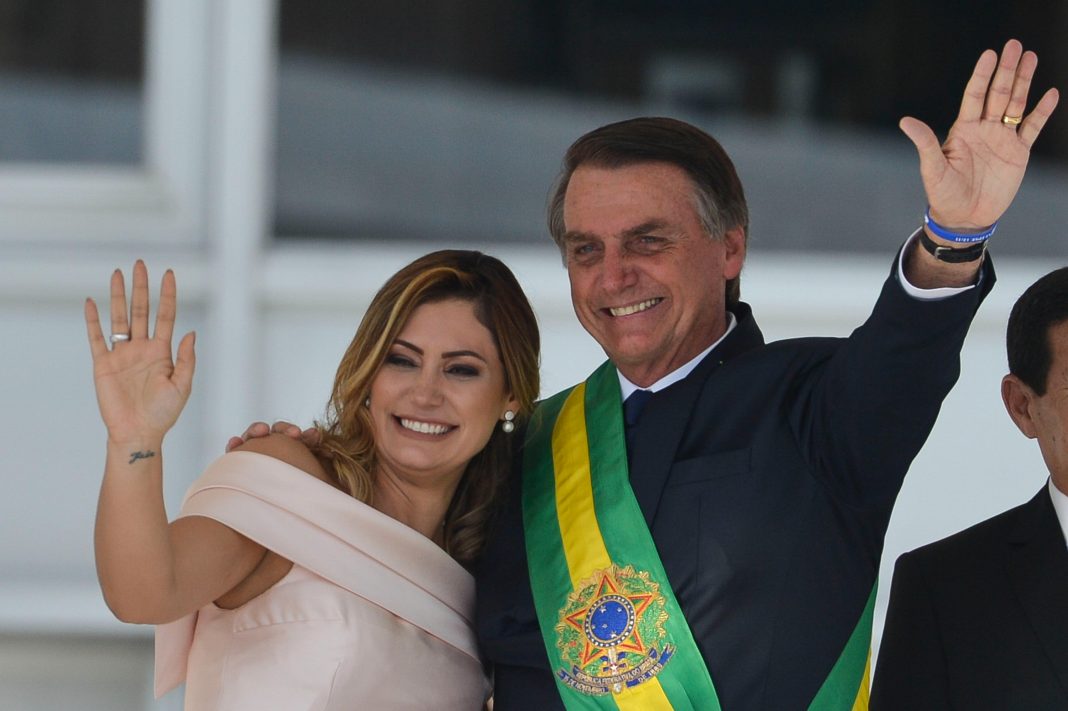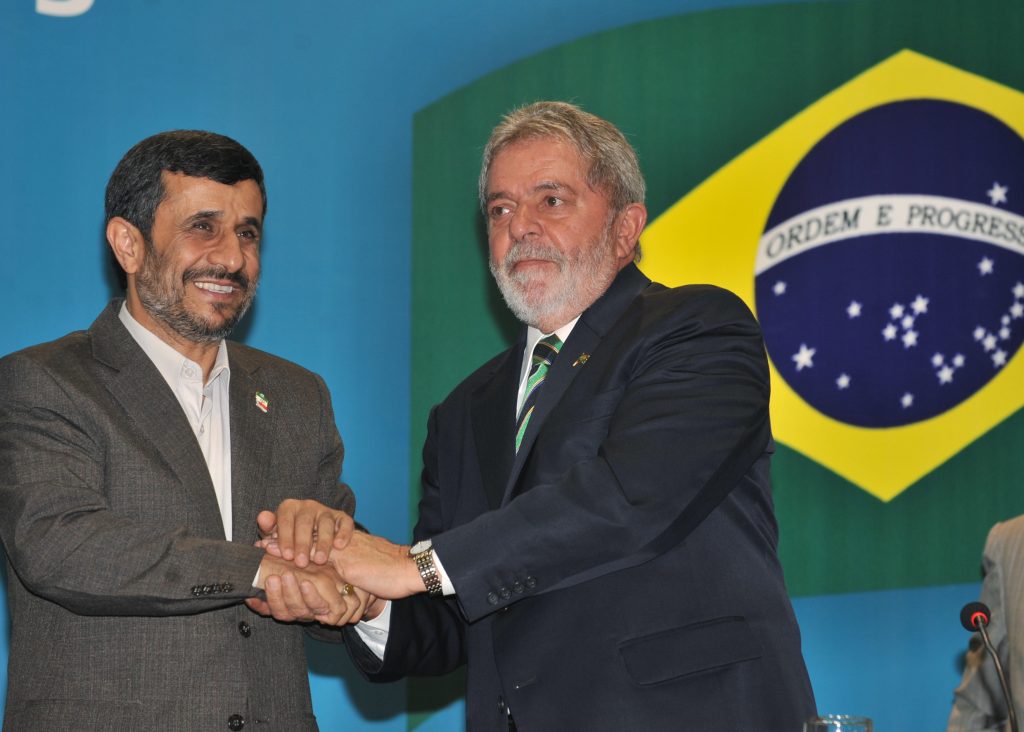
Many people remember the 2020 U.S. presidential election as one of the most controversial elections in U.S. history, a tight race between former vice president Joe Biden and Donald Trump. Tensions were at an all-time-high as millions of Americans spent hours in front of the television, waiting to see who would take office for the upcoming term.
Now, just two years later, Brazil faces an election with an eerie resemblance.
After the first round of elections on Oct. 2, left-wing candidate and former president Luiz Inácio Lula da Silva will face right-wing candidate and current president Jair Bolsonaro in a runoff on Oct. 30.
Lula da Silva came out of the election securing 48.43% of the votes, a mere 5% ahead of Bolsonaro, who accrued 43.20% of the votes. Despite early predictions of a landslide victory for Lula da Silva, the polls on Sunday, Oct. 2 revealed that Bolsonaro could be here to stay.
Liberal party candidate Bolsonaro has already claimed election fraud and casted doubts about the country’s electronic voting system, earning him the nickname “Trump of the Tropics”, a reference to Trump’s claims that the 2020 U.S. presidential election had been “stolen”.
“Trump is an inspiration and a role model to Bolsonaro and he has shown that multiple times,” said a Brazilian student at UM, who has asked to remain anonymous. “Bolsonaro only started questioning the efficiency of Brazil’s electronic voting system — which had never been put into question before — once Trump began saying that there was fraud in the 2020 elections in the U.S.”
Many also compare Bolsonaro’s COVID-19 pandemic response to that of Trump’s, with over 680,000 COVID-related deaths likely stemming from delays in vaccine distribution, disseminating false information about the COVID-19 vaccine and pushing for the use of unproven drugs like hydroxychloroquine.
Other criticisms of Bolsonaro’s government are tied to his failures in the environmental sector and environmental protection, a key component of Brazil’s identity that is linked to the health of the Amazon rainforest.
“Like other government leaders worldwide, Bolsonaro is to some extent victim of the pandemic in the way that it compounded Brazil’s economic, public health and social problems. He didn’t help with his cavalier attitude toward the pandemic and those pandemic impacts on society may be what ultimately loses him the second round of the election,” said Latin American studies professor John Twichell.

Workers’ party candidate Lula da Silva served as president during a very favorable period of Brazil’s history. Between 2003 and 2010, the rate of deforestation plummeted as Lula da Silva implemented a policy that halted logging in the Amazon during his term. The Brazilian stock market skyrocketed into an economic boom and Brazil’s gross domestic product quintupled from $500 billion to $2.6 trillion during the same period.
“If we are putting it in terms of perceptions of the direction that the country is headed in, I think that if Lula da Silva wins in the second round there will be optimism among the majority of the people including those who did not vote for Lula,” said Twichell. “There will be a sense that Brazil will be better positioned to return more towards the growth and normalcy of the first decade of the 2000s overseen by Lula.”
However, despite the fact that many tend to see Lula da Silva’s presidency in a euphoric light, his political history is not without turmoil.
The majority of criticism for Lula da Silva’s campaign is linked to corruption and his involvement in Operation Car Wash (PT: Operação Lava Jato), a money laundering scheme that eventually led to his imprisonment in 2018. However, claims of improper jurisdiction lead to a retrial, and the court annulled all convictions against Lula da Silva in April 2021, allowing him to run again for president in 2022.
While for some, Lula da Silva’s campaign symbolizes a nostalgia for Brazil’s golden age, it is no question that the beginning of his third term will be more difficult than his second. As of September 2022, Brazil’s public debt stands at 78% of the GDP while poorer communities of Brazil are facing intense inflation.
People have also expressed concerns that Lula will run into a spending-spree in order to fuel the motor of economic growth, a habit that led to one of the worst recessions in Brazil’s history from 2014 to 2016.
“If Lula is elected president of Brazil, there will be a lot of negative repercussions in our economy and society,” said sophomore economics major Carlos Eduardo Camisão, who was born and raised in Brazil. “His government was responsible for the biggest corruption scandal in Brazil’s history and if elected again, the same mistakes committed during his time as president will unfortunately happen again.”
Despite the severe economic and social consequences of the pandemic, many admire Bolsonaro’s efforts to stimulate economic growth during his term, including a recent spending package and a policy allowing employees to withdraw cash from a redundancy fund.
Since February 2022, Bolsonaro has consistently been climbing in the polls, his votes increasing by just over 10% in a six-month period. Lula da Silva’s numbers have remained rather steady, fluctuating between 41% and 43% over the same period. However, now that the first round of polling has concluded, the race appears closer than ever before.
The outcomes of this election remain rather uncertain. If the polls see no adjustments between now and Oct. 30, it appears that Lula da Silva will secure the victory.
“Lula received six million more votes than Bolsonaro and I believe a number of people who voted for other center/leftist candidates in the first round of elections will vote for him in the run-off, because they understand the threat that Bolsonaro poses,” the anonymous student said, “I don’t think it has ever happened in Brazil that a candidate who own the first rounds did not win the run-off, so I don’t think the chances of that happening are likely.”
On the other hand, if the polls take another drastic turn in favor of a Bolsonaro victory, there is no telling of what could follow.
“If Bolsonaro does win, I think that it will be polarizing in the short-term. It will be a result that instills polarization between the right and the left. There won’t be any honeymoon period for Bolsonaro, indicative of an incumbent, whereas if Lula da Silva wins the second round he will have a relatively longer honeymoon period than that of Bolsonaro because Brazilians are fed up with the status quo,” Twichell said.
There are concerns about what Bolsonaro will do in the event of a defeat, given his close relationship with the military. While some are confident that Bolsonaro will cooperate with the results, others believe Brazil’s law and order may not be enough to fight against claims of election fraud.
“I would not be surprised if something like January 6th happened in Brazil–with the difference that we don’t have such a strong rule of law as the U.S., so it could have different consequences,” the anonymous student said.





